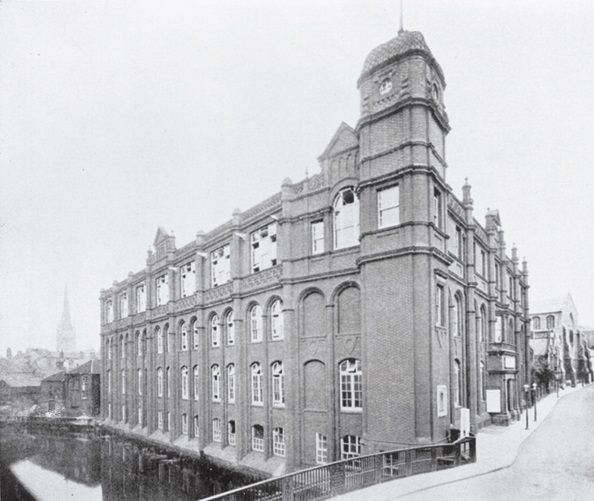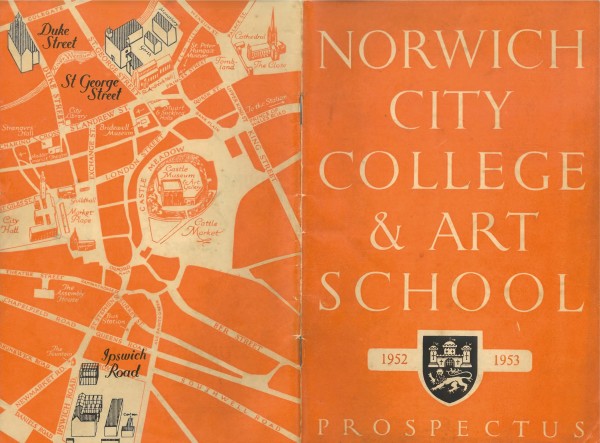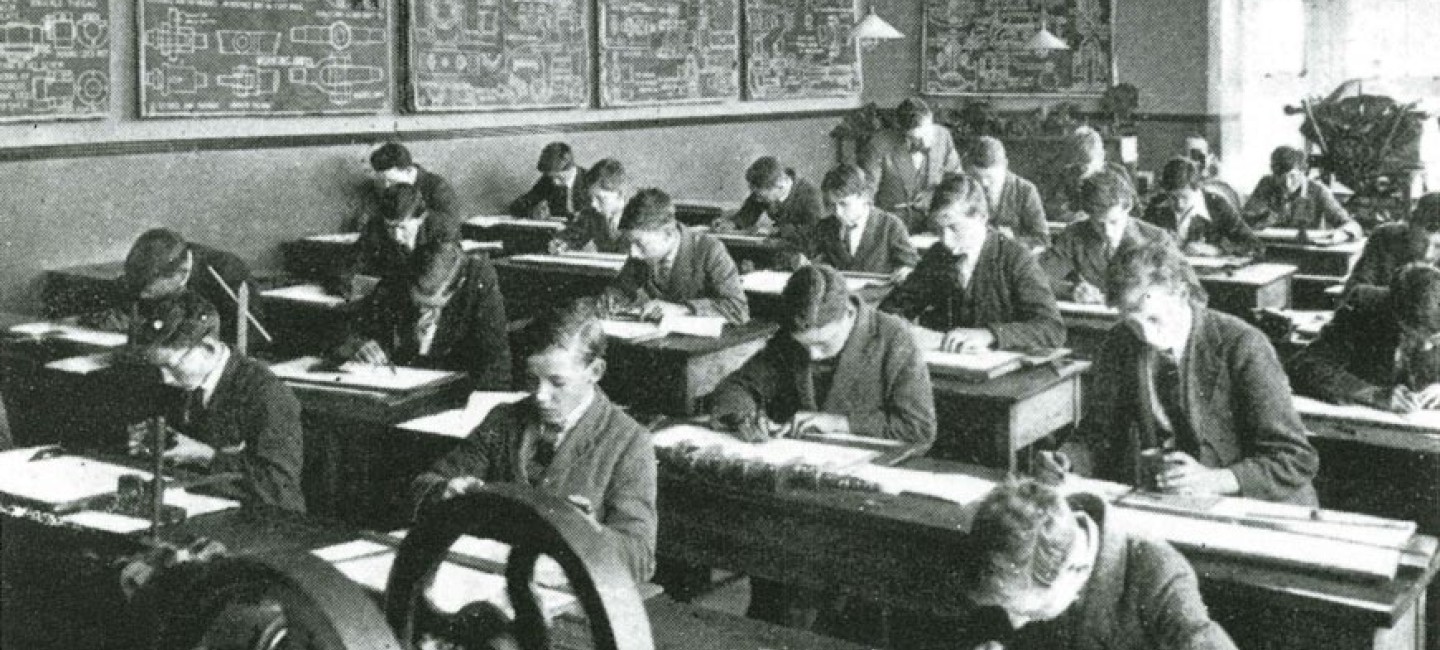History of City College Norwich
City College Norwich’s history spans over a century and a quarter, and its development reflects the huge changes that have taken place both in education and in society as a whole.
A brief history
Today, City College Norwich is one of the largest colleges of Further and Higher Education in the country. Over 9,000 students of all ages enrol for courses each year, almost all of them drawn from Norwich and Norfolk. Our college is, and always has been, very much of its community and for its community.
That was certainly the intention of the college’s founding fathers, the civic leaders of Norwich, who in 1891 resolved to establish a centre for technical education. A technical school was opened that year in premises on St George’s Bridge Street. Ten years later it became the Municipal Technical Institute, taking over the Norwich School of Art, which remained a part of the College until 1964.

The technical school building on St George's Bridge Street
At the end of the last century, vocational education was still a new concept, but there was an important part for the college to play in the future economic development of the area. Norwich was suffering badly from the effects of the industrial revolution, and poverty and squalor were widespread. However, new industries were emerging (such as manufacturing, printing, banking and insurance), which brought economic recovery, and these were reflected in the curriculum of the embryonic technical school.
The new Municipal Technical Institute added further subjects – Science, Art, Domestic Science, manual training and trade classes, commercial and literacy classes. It also offered courses to prepare students for London University examinations up to a BSc Degree.
The first half of the Century saw steady growth in all areas and in 1930 it was designated a college for the first time, with a clear departmental structure. During the Second World War the new Norwich City College and Art School played a key role in the community, providing a whole series of short courses to teach requisite skills to an emergency workforce, which included many women.
The war had placed on hold the development of a new campus on Ipswich Road. The Norwich Building was finally opened in 1953, the first of its kind to be completed since the war. Development of the campus has continued to meet the demands of a growing student population, and an expanding curriculum, ever since – most recently with the opening of the Digi Tech Factory (2021), Advanced Construction and Engineering Centre (2023), and Construction Skills Building (due to open in 2024).

Timeline
1891 - New technical school for the city established in a temporary home in St George’s Bridge Street.
1901 - Technical school becomes the Municipal Technical Institute and takes over the Norwich School of Art.
1913 – Norfolk and Norwich School of Cookery absorbed into the Technical Institute (forming the new Domestic Science Department)
1930 – Renamed ‘Norwich Technical College’, subsequently becoming ‘The Technical College and School of Art, Norwich’ (from 1938).
1939 – Plans for new college campus on Ipswich Road approved. Building works started, but were halted by the outbreak of war.
1951 – First classes are taught in the South wing of the new Norwich Building.
1953 – Official opening of the Norwich Building.
1964 - Norwich School of Art separated from City College under its own governing body.
1972 – Southwell Lodge opened as a student residence.
1974 - The College passed from City to County Council control.
1988 - Renamed City College Norwich.
1991 – The college became a Regional College of Anglia Ruskin University (formally APU).
1993 - The college became an incorporated body responsible for its own finances and destiny.
1995 – Our Higher Education students’ graduation ceremony was held in Norwich Cathedral for the first time.
1998 – HRH The Princess Royal officially opened the Norfolk Building.
2006 – City College Norwich became an Associate College of the University of East Anglia.
2010 – Awarded the Queen’s Anniversary Prize for Higher and Further Education for our innovative and student-centred provision for students with autism through the RUGroom.
2013 – The Creative Arts Building was opened on the Ipswich Road campus.
2015 – A new centre for learners with Profound and Multiple Learning Difficulties, the PMLD Building, was opened.
2017 – Merger with Paston College (formerly Paston Sixth Form College) in North Walsham.
2017 – The college was a key partner in the launch of the new International Aviation Academy Norwich (IAAN).
2019 – Named as one of four national Centres for Excellence in Special Educational Needs and Disabilities (SEND).
2020 – The college helped pioneer the development of T Levels and was chosen to be one of the first colleges in the country to offer the new qualifications.
2020 – Merger with Easton College (formerly the Easton campus of Easton & Otley College.
2021 – The Digi-Tech Factory was opened, providing specialist facilities for teaching a wide range of digital skills.
2023 – The Advanced Construction and Engineering (ACE) Centre was opened.
2025 – The Construction Skills Hub opened at Ipswich Road, providing a flexible new teaching space for training in construction trades.
Notable alumni
- Tom Aikens – professional and Michelin starred chef.
- Franklin Allen – economist.
- Sam Claflin – actor.
- Stephen Fry – comedian and actor.
- Sigala - musician.
- Rodolfo González – motor racing driver.
- Alfie Hewett – wheelchair tennis player.
- Jon McGregor – novelist and short story writer.
Find out more
If you would like to learn more about the history of City College Norwich, Dr Alan Metters' book, 'The Tech': One Hundred Years of Technical Education in Norwich, 1891-1991, available from the college library, is highly recommended.
